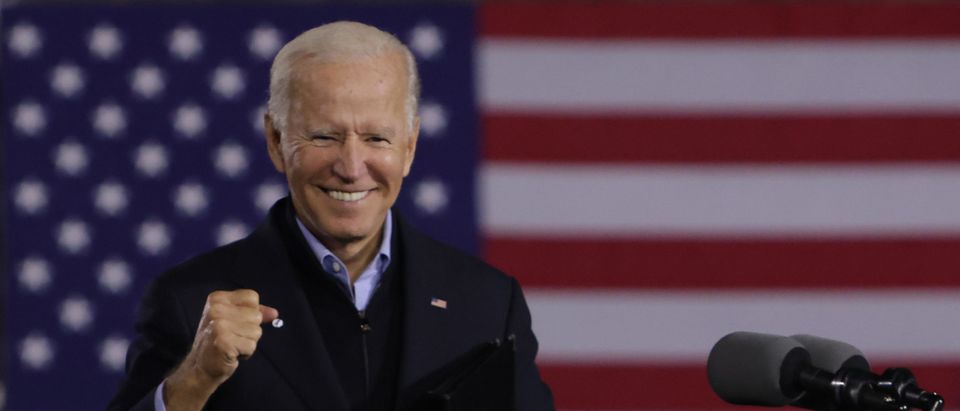President Joe Biden entered the White House on a message of bipartisanship, but now he’s redefining the word to leave Republicans in Congress on the sidelines.
When Biden’s $1.9 trillion coronavirus relief bill passed through Congress without a single Republican vote in either the House or the Senate, the White House nevertheless heralded it as a “bipartisan” victory. The administration justified the statement at the time by pointing to polls showing overwhelming support for COVID-19 relief among the public. Biden is now preparing to do much the same with his multi-trillion-dollar infrastructure plan, which many Republicans argue has little to do with infrastructure.
“If you looked up ‘bipartisan’ in the dictionary, I think it would say support from Republicans and Democrats,” Senior Biden Adviser Anita Dunn told the Washington Post on Monday. “It doesn’t say the Republicans have to be in Congress.”
Biden’s faction has begun to argue that Republican voters’ sentiment in polls outweighs their decision to elect their current representatives in Congress. (RELATED: Psaki Says White House Targeting ‘White Conservative Communities’ With Vaccine PSAs On ‘The Deadliest Catch,’ NASCAR, and CMT)

WASHINGTON, DC – APRIL 09: U.S. President Joe Biden (3rd L) meets with (L-R) Director of the National Economic Council Brian Deese, Vice President Kamala Harris, and Secretary of the Treasury Janet Yellen during the weekly economic briefing in the Oval Office at the White House on April 9, 2021 in Washington, DC. (Photo by Amr Alfiky-Pool/Getty Images)
Republican Utah Sen. Mitt Romney, a moderate, criticized Biden’s new push to redefine the word earlier in April.
“A Senate evenly split between both parties and a bare Democratic House majority are hardly a mandate to ‘go it alone,'” Romney wrote. “The President should live up to the bipartisanship he preached in his inaugural address.”
Biden’s infrastructure bill is a prime example of Biden’s willingness to redefine words to pass his legislation. Republicans have pointed out that the vast majority of the bill does not go toward roads or bridges, but instead to climate change efforts, welfare programs and even critical race theory initiatives. But polls show wide support for an infrastructure bill, and Biden uses his dubious definition of “infrastructure” to support his dubious definition of “bipartisanship,” arguing for passing the bill without any Republican votes.
As a result, Republicans in Congress are lambasted for abusing their minority power when they oppose their opponents.
Biden and other Democrats are also wielding this redefined bipartisanship as a cudgel to eliminate opposition in the Senate. While Biden was for decades opposed to eliminating the Senate filibuster due to its role in supporting the minority party, he has now expressed more openness to it. The 2020 election gave Biden a 50-50 Senate and a slim majority in the House. It is hardly a mandate but Biden’s refusal to compromise with Republicans on any policy since gaining office is the action of a president who nevertheless believes he has one.
Even Democratic West Virginia Sen. Joe Manchin, a moderate who opposes removing the filibuster, argued that “Republicans have a responsibility to stop saying no” to Democratic proposals.


